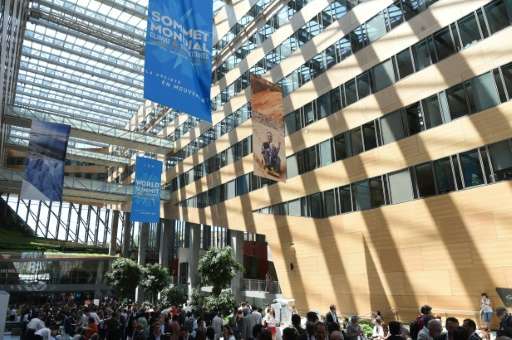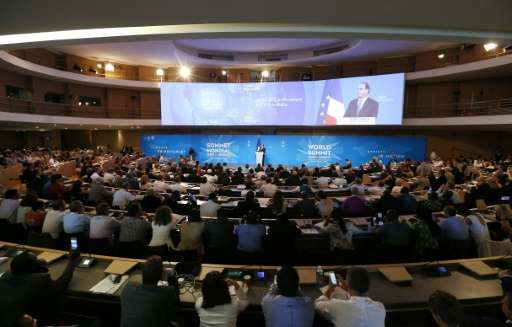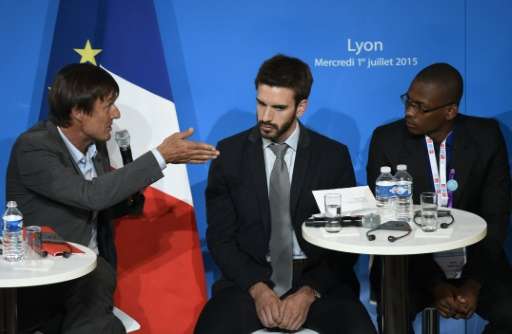Cities, regions, demand bigger climate say

Leaders of city and regional governments gathered Wednesday in the French city of Lyon, in the grips of a western European heatwave, to demand a bigger stake in the global push to curb global warming.
Local and regional governments often bear the biggest burden for dealing with the fallout from extreme weather events, which scientists predict will become more severe and commonplace as the climate changes.
More than half of the world's population lives in urban areas, and are blamed for more than 70 percent of the world's Earth-warming greenhouse gas emissions.
Yet cities and regions have no formal seat at the negotiating table for an agreement to be signed at a year-end UN conference in Paris to limit average planet warming to two degrees Celsius (3.6 degrees Fahrenheit) over pre-Industrial Revolution levels.
Nor do they have easy access to climate finance, mainly entrusted to, and disbursed by, national authorities.
Cities "are today much more exposed to climate risk," Clement Larrue of France's AFD development institute told AFP on the sidelines of the gathering, pointing to a noxious mix of rising temperatures and urban infrastructure ill-designed to deal with it—often exacerbating the effects.
"How to redesign a town to be more resilient and less energy-hungry? This can only be achieved through investments in energy-efficient transport and buildings, measures often within the competencies of local government," he said.
"Communities have to assume our share of the responsibility," added Dakar mayor Khalifa Ababacar Sall.
"The problem is to obtain finance... we need to free ourselves from state financing."

French President Francois Hollande, presiding over the Paris conference, told delegates Wednesday he agreed that "a portion of these (climate) funds must be accessible directly by local and regional governments."
Mayors and governors, along with representatives of NGOs, company bosses, workers, labour unions, scientists and social groupings, are gathered in Lyon for the two-day summit entitled "Climate & Territories".
Organisers have dubbed it "the principal gathering of non-state actors before COP 21"—using the acronym for the November 30-December 11 Conference of Parties to be held under the umbrella of the 195-party UN Framework Convention of Climate Change in Paris.
The Lyon gathering will emerge with carbon-reducing commitments and proposals for COP negotiators, said a statement.
"Your participation is particularly important," UN secretary general Ban Ki-moon told participants in a message read by his climate representative Janos Pasztor.
Locally, things are happening
Ban also expressed concern "that we are not yet on the path to reversing the emissions trend or limiting global warming to 2C."

Scientists warn that on current trends, Earth is on track for warming much higher than the target—a recipe for catastrophic droughts, fiercer storms, more frequent heatwaves and other extreme weather events.
With just five months to the signing of the highly-anticipated Paris pact, the UN negotiations remain deeply divided along political lines.
"Practical solutions on the ground are already much more advanced than the governments taking part in the negotiations," said Pasztor.
Added Matthew Rodriquez, California's secretary of environmental protection: "It's important to let the international stage know what's going on at the subnational level.
"There's a lot of work that's been done, we have successful programs in many parts of the world... What we'd like to do is be able to take those lessons learnt, those programs that we have and discuss them at the international level, discuss them at the COP."
Examples include Copenhagen with its commitment to carbon neutrality, Vancouver which aims for 100 percent renewable electricity by 2050, California seeking to bring emissions levels below 1990 levels by 2020.
Last September, about 80 cities signed a UN-initiated "Compact of Mayors", committing to emissions cuts.
© 2015 AFP


















